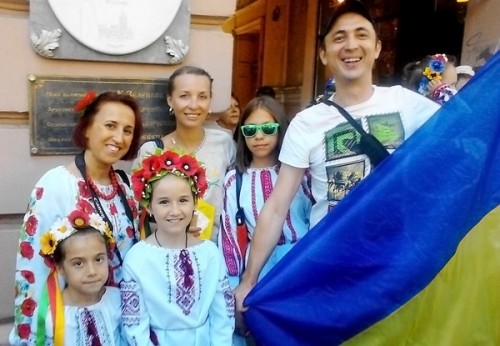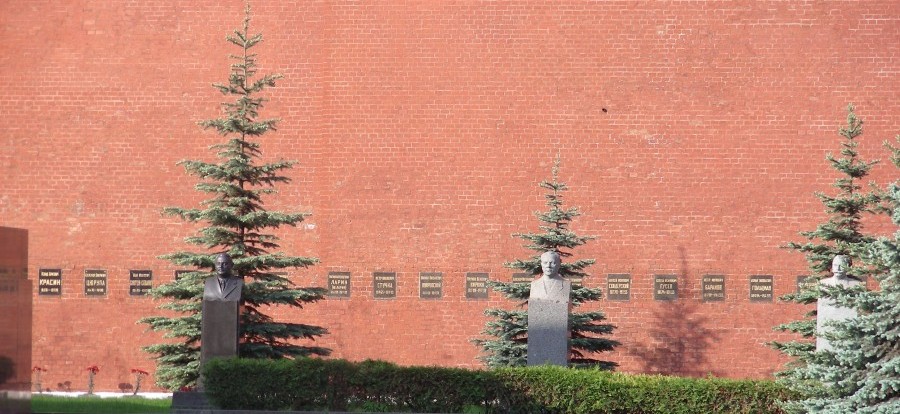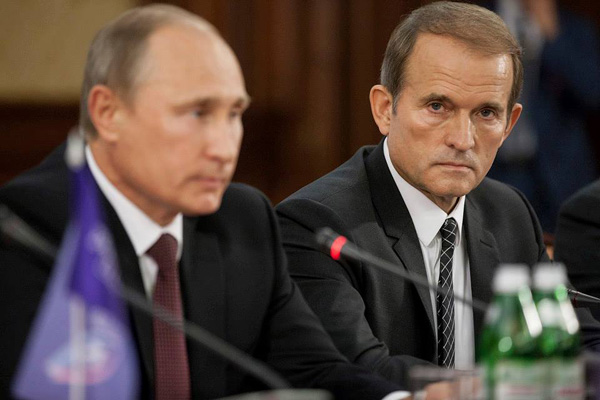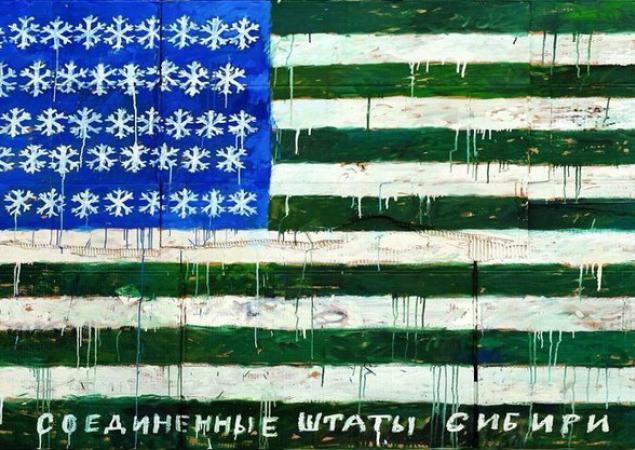The organizers of the “March for the federalization of Kuban” have been included into the federal “List of extremists and terrorists” by the Russian authorities. This, comical in many aspects, action was planned for August 17, on the same day as the march for “Federalization of Siberia,” by a group of activists from opposition movements and ordinary residents of Krasnodar.
The participants of the Siberian march had been detained, but were later released. Those in Krasnodar were less lucky: in relation to this case two people are currently in a detention center. They are charged with extremism and actions aimed at the violation of territorial integrity of the Russian Federation. Two more are declared as wanted. Peter Lubchenkov, a psychologist from Krasnodar and one of the organizers of the “March for the federalization of Kuban,” told Radio Svoboda that he is currently in Ukraine. He asked for political asylum in this country and is now undergoing military training before serving in one of Ukrainian volunteer battalions.
The “Marches for federalization” were originally intended to be actions in support of Ukraine, their name was meant to highlight the absurdity of Russia’s support of the separatists’ demands in East Ukraine, which the organizers themselves stressed many times. However, the Russian special services have reacted to these plans of the opposition with grave seriousness. In Novosibirsk, the organizers of the march that included radical left-wing activists were already detained 17 days prior to the day of the march on August 17. All the groups in the VKontakte social network devoted to the march were blocked. The interview by the Russian service of BBC with a Novosibirsk artist Artem Loskutov, who was also one of the organizers of the march, had nearly led to website of the radio station being blocked on Russia’s territory.
At the beginning of September, when people had already started to forget about the “Marches for federalization,” an activist of the “Solidarity” movement, Dariya Poliudova, was arrested for two months in Krasnodar. She was charged under two articles of the criminal code at once: (Article) 280, part II – “public appeals for extremist activities, carried out on the Internet” and (Article) 280.1, part II – “public appeals for actions, aimed at violation of territorial integrity of the Russian Federation, committed with the use of the Internet.” Poludova is facing up to 5 years in prison under each of the Articles. On September 26 one more activist of “Solidarity” in Krasnodar, Sergei Titorenko, was arrested on the same charge. Two more organizers of the action, a psychologist Peter Lubchenkov and an anarchist Viacheslav Martynov
had left to Ukraine and are on the federal wanted list.
On Friday, September 26, the surnames of Lubchenkov, Martynov, and Poliudova have appeared in the “List of terrorists and extremists” on the website of Rosfinmonitoring [the Federal Financial Monitoring Service]. According to the Federal law on “Countering legalization of illegal earnings (money laundering) received through crime and the financing of terrorism,” the individuals included in this list are subject to restrictions in spending of financial resources on their bank accounts. These restrictions meant that they cannot withdraw more than 10 thousand rubles per month from their bank account and all money transfers to their accounts are blocked. Peter Lubchenkov, with whom the Radio Svoboda got in touch, is currently more worried about the fate of his colleagues that were arrested in Russia, as opposed to the financial restrictions.
Peter Lubchenkov talks about being included into the “List of terrorists and extremists” by the Russian authorities.
Peter, how is your life going now under the impressive title of “a terrorist and an extremist?”
It is very unusual, I’ve had mixed feelings and thoughts about this, now I’ve gotten used to it, if I get called a terrorist, then so be it. Presently, the most important thing for me is for the people who were arrested to be released. As far as I know, there are four people who have been charged in relation to our case. It’s me, Dariya Poliudova, Viacheslav Martynov, and Sergei Titorenko that was arrested two days ago. I have a feeling that the Federal Security Service (FSB) simply decided to “even out the score,” as two from the three organizers have fled to Ukraine, so they are arresting another one. Sergei Titorenko didn’t have anything to do with the action, but had morally supported us. He is a “Solidarity” and ecological activist. I know him from ecological rallies.
Are there apprehensions that they would be used as hostages? Were you and Viacheslav Martynov contacted with a proposition to return [to Russia] and stand before the court in exchange for the release of the arrested colleagues?
Not yet, but if such an offer would have been presented [to me], of course, I would have exchanged myself for them, although I don’t take trust on what the FSB and Putin’s regime say.
How did an idea to organize the “March for federalization of Kuban” emerge, and what part of this story is a joke, and what [part] is the truth?
We were absolutely serious in that the main idea of this action was to express support for Ukraine and to show the world how hypocritical the Kremlin regime is, and how deceitful and hypocritical Putin is. This was the main idea behind the action, which was shared by everyone who took part in it. In this aspect the action was a success, because the “Marches for federalization” of Siberia and Kuban were met with huge enthusiasm in Ukraine, people rejoiced that there are forces in Russia that could help them in this uneven fight. Unfortunately, we, the activists, paid a high price for this.
The action did not even end up taking place in Novosibirsk, but in Krasnodar, as I understand, you had actually managed go onto the streets. How many people did the “March for the federalization of Kuban” gather, and how did it all happen?
The thing is that we were trying to do everything within the law of the Russian Federation to the last moment. We abandoned [the idea of] carrying out a procession, a rally, because it was not accorded with the authorities. We decided to simply stage a “public gathering,” without banners, posters or agitation. According to the current law this is the sole [type of an] action which can take place without approval [by the authorities]. The action turned out to be small-scale, only 30 people turned up. The majority of Krasnodar residents simply did not know that such an action was taking place, because we had been blocked on the Internet, and the announcements in the press were taken down. For instance, Roskomnadzor [the Federal Service for Supervision of Communications, Information Technology and Mass Media] forced the New York Times publication to take down our interview. The Krasnodar press especially couldn’t publish something like this. The whole world was aware that this action is being planned, whereas the Krasnodar residents weren’t.
How does it seem to you, is this only a matter of censorship or is the support for Ukraine in its conflict with Russia actually relatively low?
The majority of people here are zombified, running around and shouting “Crimea is ours!,” “there are fascists in Ukraine!” There is a small number of people who manage to think independently and on their own, but they aren’t united. This was also one of the main aims of the “March for federalization of Kuban” – to unite people who think independently, as well as to support them.
Why did the reaction of the authorities to this action turn out to be particularly harsh in Krasnodar - arrests, accusations for extremism, now [the names of] the organizers ending up in the list of "terrorists?" One could say that, in comparison to this, the organizers in Novosibirsk, had "got off lightly."
For Kuban this is a usual case and is normal, because this is the region where the defence and law enforcement agencies are in charge: police, FSB. Even the Siberians, who visited Krasnodar and who I talked with, said: "Strange, here the police is in charge of everything, all the questions have to be solved with the police. For us it's different, we have some other authoritative people who can solve problems, but the police has taken everything here." Also I think that someone from chiefs of FSB in Kuban has decided to move higher up in the ranks in this way, which is why they are presently persistently grabbing everyone and registering them as terrorists.
Peter, you are currently in Odesa, what are you busy with in Ukraine?
I am a psychologist, so I work as a psychologist. I asked for political asylum here. When, in the end of August, the [phase of] direct aggression of Russia against Ukraine had commenced, namely the deployment of troops and the occupation of Novoazovsk, I came to the decision that no more will I be hiding behind the backs of the guys who are defending my freedom as well, at the frontline. I decided that I will join a volunteer battalion, because the immediate danger of Odesa's occupation has appeared, so I wouldn't be able to stay here if Odesa would become occupied by the Russians. I no longer want to flee either. At the moment I am undergoing military training. I learned how to fire from a submachine gun and many other things [other weapons]. Ordinary residents of Odesa are preparing for a possible occupation, undergoing military training, learning how to wage guerrilla war, volunteers are digging the trenches, strengthening the checkpoints, helping the army.
You say "if Odesa will get invaded by the Russians," so do you not consider yourself as Russian anymore?
This is a dichotomy. Here we say "our people" and "Russians," no matter the ethnicity of those who are saying [this]. During wartime everything is simple: you have your people, and you have the enemy. In this case, we refer to the enemy as "Russians," even though Odesa is a Russian-speaking city and the majority of the population speaks Russian.
The inclusion of opposition activists into the list of terrorists by Rosfinmonitoring is in the meantime becoming a trend. It became known today that an LGBT-activist from Khabarovsk, Andrei Marchenko, was added to the list, for a post on his Facebook profile in support of Ukraine, which was written back in June (now the post is deleted). As early as September 21, Marchenko wrote that his accounts in Sberbank and Alfa-Bank were blocked. Earlier, a criminal case has been opened against him under the Article 280 of the Criminal code, which is "Public appeals for extremist activities."





